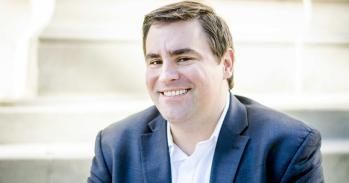
With the world’s population already estimated to be over seven billion and rising fast, the challenge of how to produce enough food has never been more pressing. Three public debates will give people the chance to hear from and question politicians, researchers and journalists on the issues at stake.
With the world’s population already estimated to be over seven billion and rising fast, the challenge of how to produce enough food has never been more pressing. Three public debates will give people the chance to hear from and question politicians, researchers and journalists on the issues at stake.
Today, an estimated one billion people in developing countries already struggle to find enough food to meet their basic needs. Millions more suffer from the effects of an unhealthy diet in the developed world.
The huge challenge of feeding the world’s fast-growing population - and its ethical, scientific, economic and political implications - will be the subject of a series of major public debates beginning in London next week.
Entitled “Feeding Seven Billion”, a figure which the global population is now believed to exceed, the series will give members of the public an opportunity to hear from, and interrogate politicians, policy-makers, researchers and academics on the general theme of food security over the course of three separate debates.
The first event, on “Biotechnology, Intellectual Property and 21st century crops”, will be held at King’s Place, London N1 at 7pm on Monday, 26 November. The organisers of this series of debates, Dr Bhaskar Vira and Dr David Nally (both from the Department of Geography), have just published a blog on The Guardian website, which addresses some important issues in this context. They argue that the use and deployment of biotechnology has political, social and economic consequences which go beyond technical arguments about efficiency and effectiveness, and that this has important implications for global food security.
Put simply, food security is the question of how to ensure affordable and fair access to safe and nutritious food for everyone. Today, an estimated one billion people in developing countries already struggle to find enough food to meet their basic needs. Millions more suffer from the effects of an unhealthy diet in the developed world.
Given the predicted rate of population growth – some believe this will reach nine billion by 2050 – and the effects of climate change, feeding people is fast becoming one of the most urgent issues of the 21st century.
At the same time, however, opinion is divided on how best to solve the issues. Biotechnology, which will be the central theme of the first debate, offers huge potential to increase crop yields and reduce the vulnerability of crops to environmental effects like salt, drought, cold and heat. It can also help to make foods stay fresh for longer and reduce dependence on agrochemicals.
Whether, or how far, such technologies should be used remains highly contentious, however. The first debate will attempt to tackle many of the outstanding questions, such as how far private industrial interests are behind the promotion of agro-biotechnologies, whether technological innovation should be the main solution to the food security problem, and how far genetically-modified, “GM” foods are a threat to food safety.
Each debate will run for 90 minutes, with a focus on audience participation. The audience will first hear from a panel of three speakers, who will each have 15 minutes to outline their views. The debate will then be opened up to the audience.
The debates are being hosted and organised by the University of Cambridge’s “Global Food Security” initiative – a strategic programme involving numerous different research projects and dozens of academics across the University. Its aim is to focus the University’s research talent on finding solutions to the food security challenge that are sustainable, fair and ecologically sound.
The biotechnology debate will be chaired by Professor Chris Gilligan, Chair of the Cambridge Global Food Security Initiative. The panellists will be Dr Derek Byerlee (Chair of the Standing Panel on Impact Assessment and the Consultative Group on International Agricultural Research); Professor Ian Crute (Chief Scientist, Agriculture and Horticulture Development Board. Lead Expert Group for the UK Foresight project on Food and Farming Future); and Professor Jack Kloppenburg (Distinguished environmental sociologist and award-winning author of “First the Seed: The Political Economy of Biotechnology).
The second debate, on 28 January, 2013, will be on “Intensification versus extensification of global agriculture”, and will examine whether an industrialised approach to farming is the best way to feed the world’s population. The third event will be held on 8 April 2013.
Tickets for the debates are £9.50 each and can be obtained from the King’s Place website, www.kingsplace.co.uk. Further information about Cambridge Global Food Security can be found at http://www.globalfood.cam.ac.uk
This work is licensed under a Creative Commons Licence. If you use this content on your site please link back to this page.





